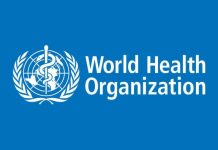
The Pharmaceutical Society of Nigeria (PSN) has commended the bold steps taken by officials of the National Agency for Food and Drug Administration and Control (NAFDAC) in sealing three major open drug markets—Idumota, Onitsha, and Ariaria—describing the move as a long-overdue action that will promote a healthier drug distribution system in the country.
The Society, however, swiftly added that unless the Federal Ministry of Health, through the Minister of Health, Professor Ali Pate, inaugurates the National Task Force on Fake and Counterfeit Drugs—responsible for sanitising drug distribution in the country—there may be no end to the activities of open drug markets, as NAFDAC lacks the capacity for full enforcement.
The immediate past Chairman of the Lagos State PSN, Pharm. Gbolagade Iyiola, and the current Chairman, Pharm. Babayemi Oyekunle, made these remarks in separate interviews with Pharmanews.
NAFDAC officials sealed the Ariaria International Market in Aba, as well as the Idumota and Onitsha open drug markets on 10 February, after discovering large quantities of unregistered and banned drugs. NAFDAC’s Deputy Director for Inspection and Enforcement (South-South/South-East), Mr Omoyeni Babatunde, stated that the agency had confiscated unregistered and prohibited medicines in the patent medicine sections of the markets.
According to Pharm. Iyiola, the closure of the markets is a positive development, but unless the National Task Force is constituted, the action will only be temporary.
“There is an official organ that is supposed to be serving with that responsibility, which is NAFDAC together with the Federal Ministry of Health. They need to be officially launched; else this feat is not sustainable. The only organ that is created to sustain it is the task force at the state level and the federal level. NAFDAC cannot really do much without the Federal Ministry of Health.
“I’m sure in the next one week, those people would have gathered themselves again, and it will be business as usual. But if the task force is on ground, that will be their own responsibility to see to the fact that nothing is coming up there again.”
The deputy director further explained that the task force is typically made up of NAFDAC and Pharmacy Council of Nigeria (PCN) officials, as the PCN is responsible for facility registration and the regulation of the pharmacy profession itself. He, therefore, called on Professor Pate to immediately commission the National Task Force to ensure the sustainability of the ongoing enforcement against open drug markets.
Pharm. Oyekunle echoed the views of his predecessor, emphasising the need for a sanitised and well-regulated drug distribution system in the country, which would significantly reduce morbidity and mortality in Nigeria. He also noted that refining the drug circulation system would enhance Nigeria’s global reputation, ensuring that safe and effective medicines are available in the country.
“It’s an important and good step in the right direction because now, if we are able to make sure that the products that are in and out of Nigeria are genuine products and the premises where they are sold are licensed and have superintendent pharmacists, we can go to sleep that we have made a milestone achievement in drug circulation,” he stated.
The Lagos PSN chairman elaborated on the sustainability of the enforcement action, urging all state governments to follow the example of the Kano State Government in establishing Coordinated Wholesale Centres (CWCs), where patent medicine dealers would operate directly under the supervision of NAFDAC and PCN. He stressed that such a system would significantly ease the country’s burden of counterfeit and substandard drug distribution.
To maintain the momentum of the current enforcement, Oyekunle stated, “We expect the Federal Ministry of Health to step in immediately into the situation, because the government has the might and resources to do whatsoever it wishes to do. It is doable within the shortest possible time to put up a similar CWC structure like that of Kano State.”
Regarding the economic impact on traders whose shops were shut down by NAFDAC, he clarified, “The truth is that nobody is actually looking to make people unemployed. What we have been expecting is that all state governments should follow the Kano State example. That is, we must have Coordinated Wholesale Centres (CWC), which is a refined drug market, with the presence of NAFDAC and PCN for proper monitoring of activities.
And anyone among these traders who wishes to migrate into the CWC can just employ superintendent pharmacists to be in-charge of their premises.”










